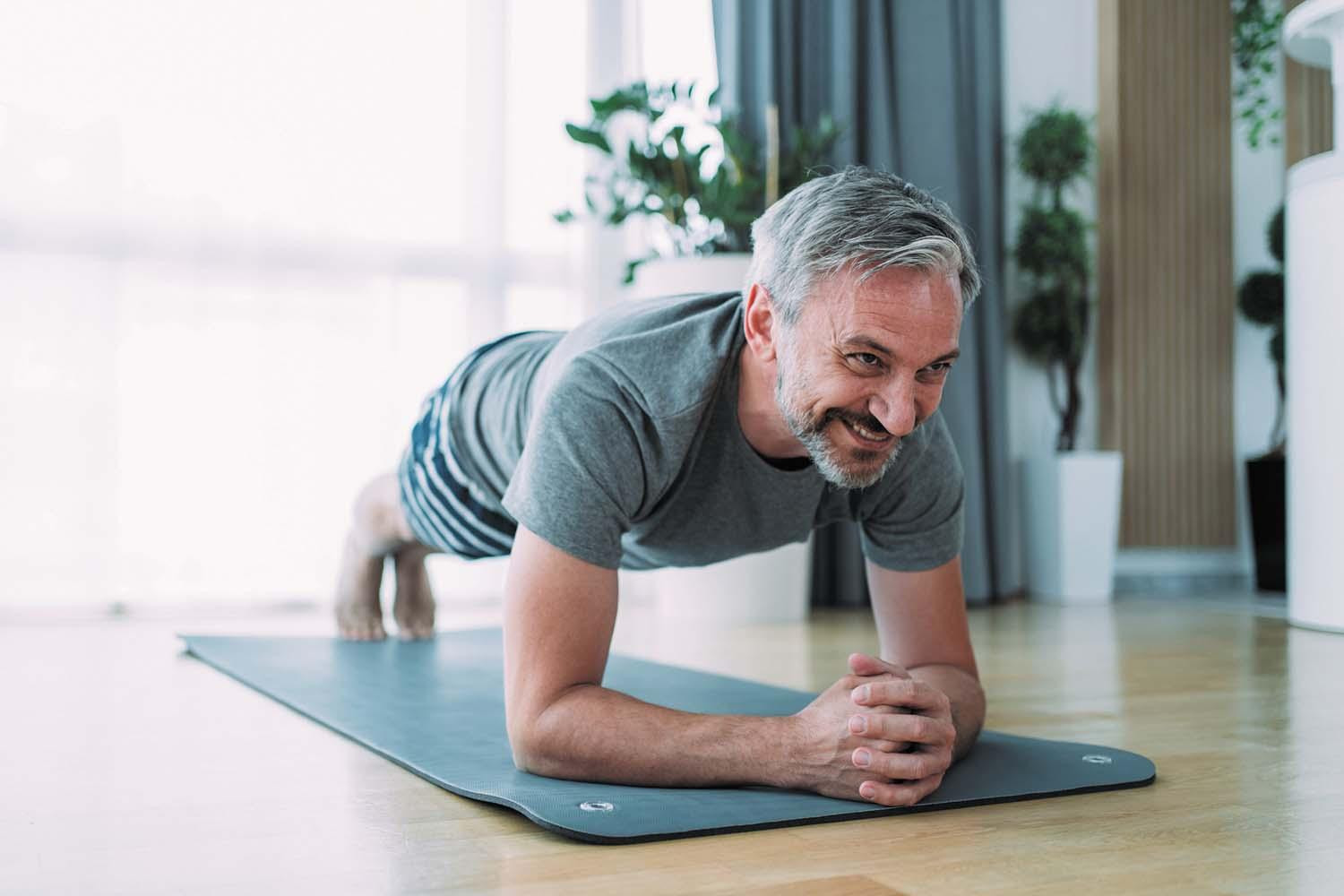
What are somatic workouts?

How to curb your stress eating

How to spot Parkinson’s disease symptoms

8 simple ways to reduce ultra-processed foods in your diet

Heart failure symptoms in women: How they’re different

GERD diet: Foods to avoid to reduce acid reflux

Strong is the new skinny

Everyday habits that sneakily weaken your bones

Don’t wait to get help for back pain

Correcting how you walk may ease osteoarthritis knee pain
Balance Archive
Articles
Is wooziness a serious warning sign?
Wooziness is often just a passing episode of lightheadedness. But it might signal something very serious, such as a stroke or heart attack. When wooziness occurs, one should sit or lie down for a few minutes, rest, and have a drink of water or juice. If wooziness eases, it’s best to report the episode to your doctor. If lightheadedness hasn’t improved or if it’s accompanied by other symptoms, such as chest pain, trouble speaking, or weakness or numbness on one side of the body, call 911 immediately.
Are you headed for a fall?
People often don't realize they are at high risk for falling until after they've taken a tumble. Studies have shown that maintaining optimal core and postural strength, good balance, and flexibility in the calves and hips are the best ways to prevent falls. At-home tests can help highlight weaknesses in these three areas that can then be addressed with a personal trainer or physical therapist.
Try this: The "old man" test
Putting on your socks and shoes while standing on one leg is a way to evaluate your mobility, balance, core strength, flexibility, and stability.
Beyond the milestone: Health goals for your 50s onward
Setting health goals can help people in their 50s avoid developing a chronic condition that can hamper healthy aging. Goals can include improving balance through various exercises; learning a new skill to improve brain sharpness; seeking age-appropriate cancer screenings, such as for colorectal, cervical, and breast cancers; prioritizing bone health by boosting calcium and vitamin D intake and weight-bearing exercise; maintaining muscle strength through strength and resistance training; and paying closer attention to diet.
Unraveling dizziness
Bouts of dizziness can be unsettling sensations that may last only a few seconds or linger for several minutes or even longer. Episodes may be isolated or recurrent. Many people have a difficult time articulating what they experience when they say they feel dizzy, because the term encompasses a range of sensations like lightheadedness, wooziness, unsteadiness, or spinning. To help identify the cause, people should first consider whether they are experiencing primarily lightheadedness or vertigo.
Fit balance exercises into a busy day
If it's hard to fit balance training into a busy schedule, it might be easier to just do a one-minute balance exercise at different points in the day. Those points might occur during TV watching, cooking, or toothbrushing. Ideas for simple balance exercises include standing on one leg, heel raises, or sit-to-stands—going from a sitting to a standing position, arms crossed, then returning to a sitting position and repeating the process. It's best to stand near a counter or chair for support.
POTS: Diagnosing and treating this dizzying syndrome
Most of us don't think twice about standing up, but for people affected by postural orthostatic tachycardia syndrome (POTS), standing can provoke lightheadedness and a racing heartbeat. While some people with POTS will require medications, most will improve with some specific dietary and behavioral changes.

What are somatic workouts?

How to curb your stress eating

How to spot Parkinson’s disease symptoms

8 simple ways to reduce ultra-processed foods in your diet

Heart failure symptoms in women: How they’re different

GERD diet: Foods to avoid to reduce acid reflux

Strong is the new skinny

Everyday habits that sneakily weaken your bones

Don’t wait to get help for back pain

Correcting how you walk may ease osteoarthritis knee pain
Free Healthbeat Signup
Get the latest in health news delivered to your inbox!
Sign Up











